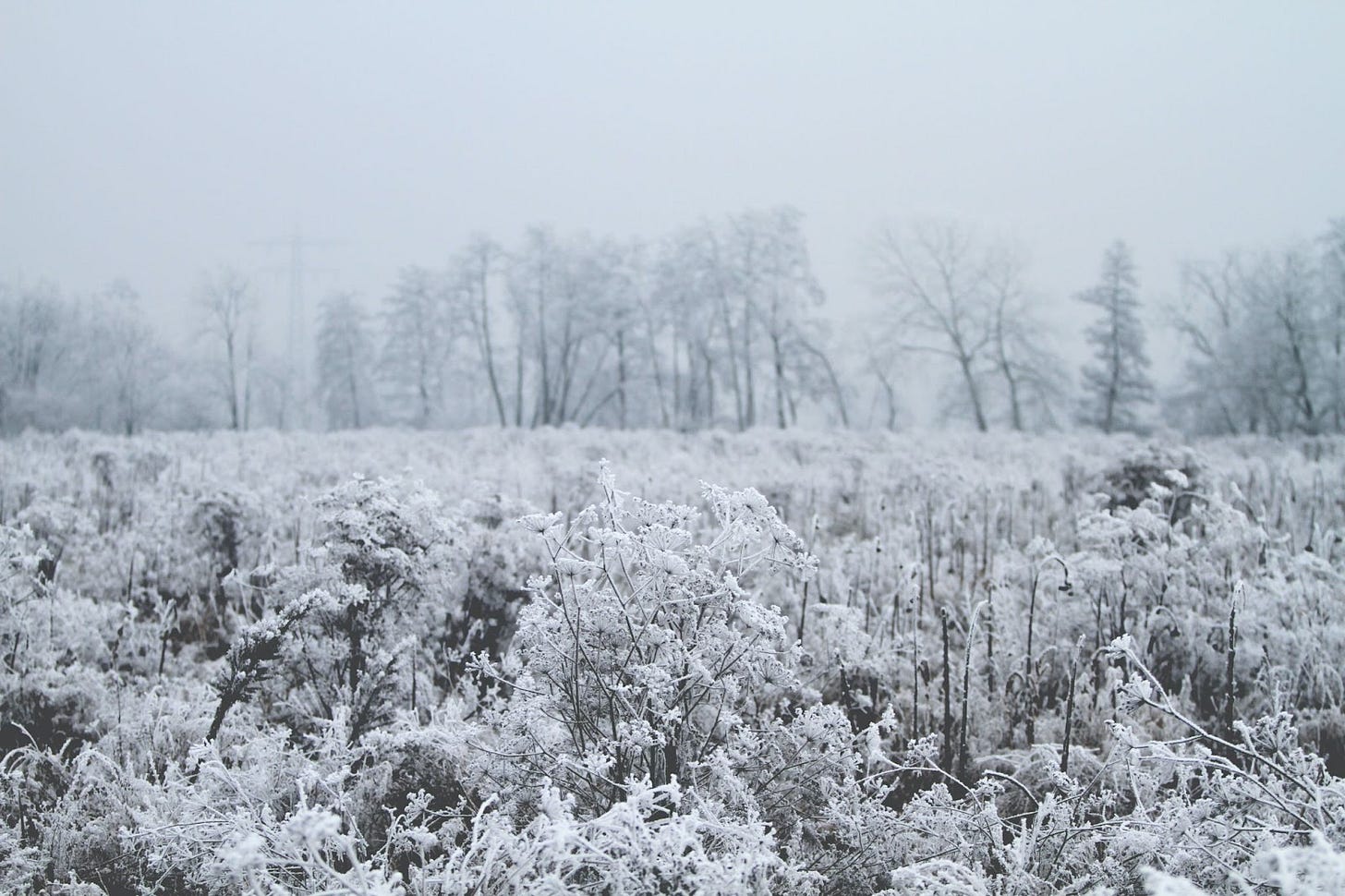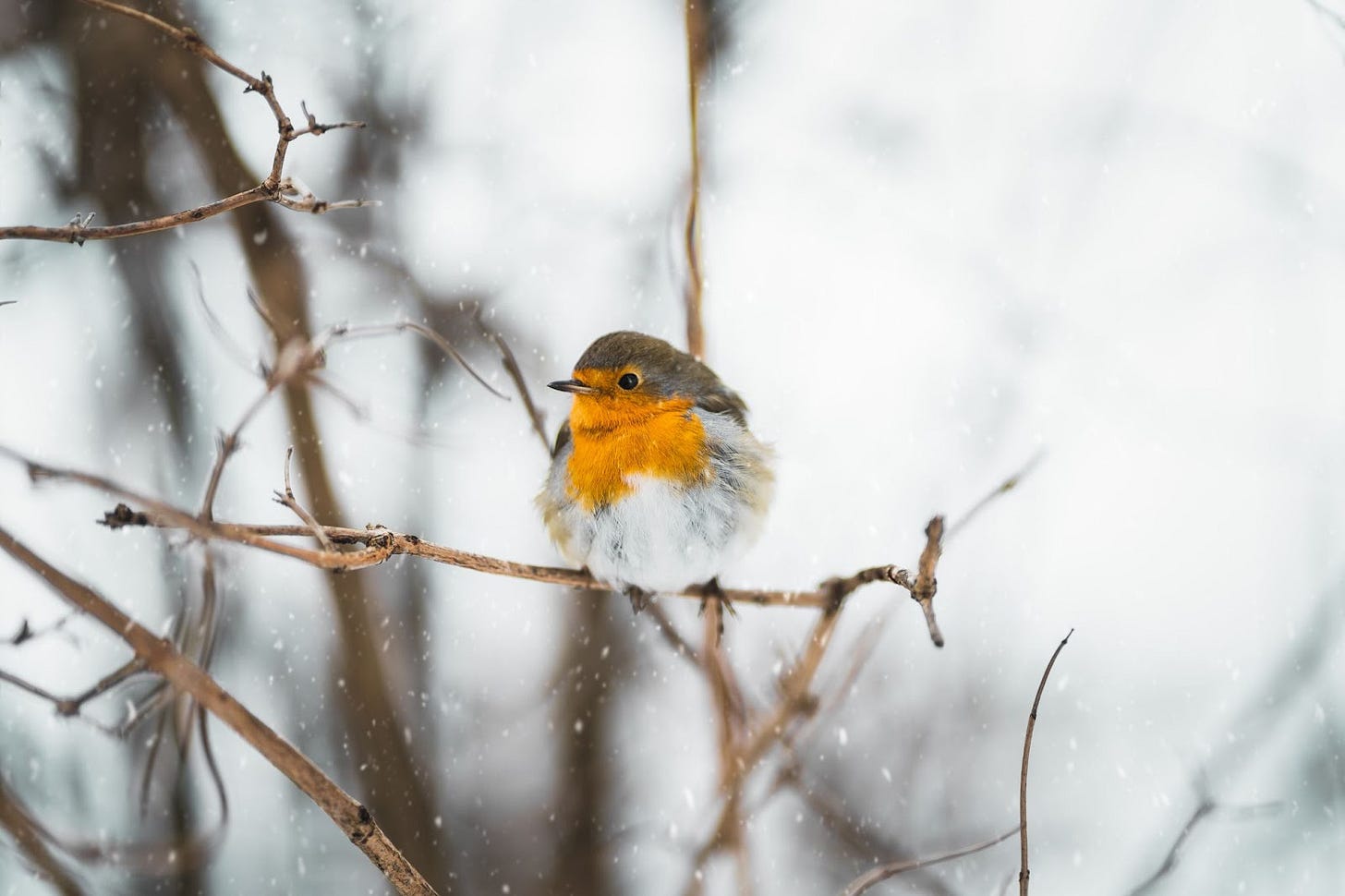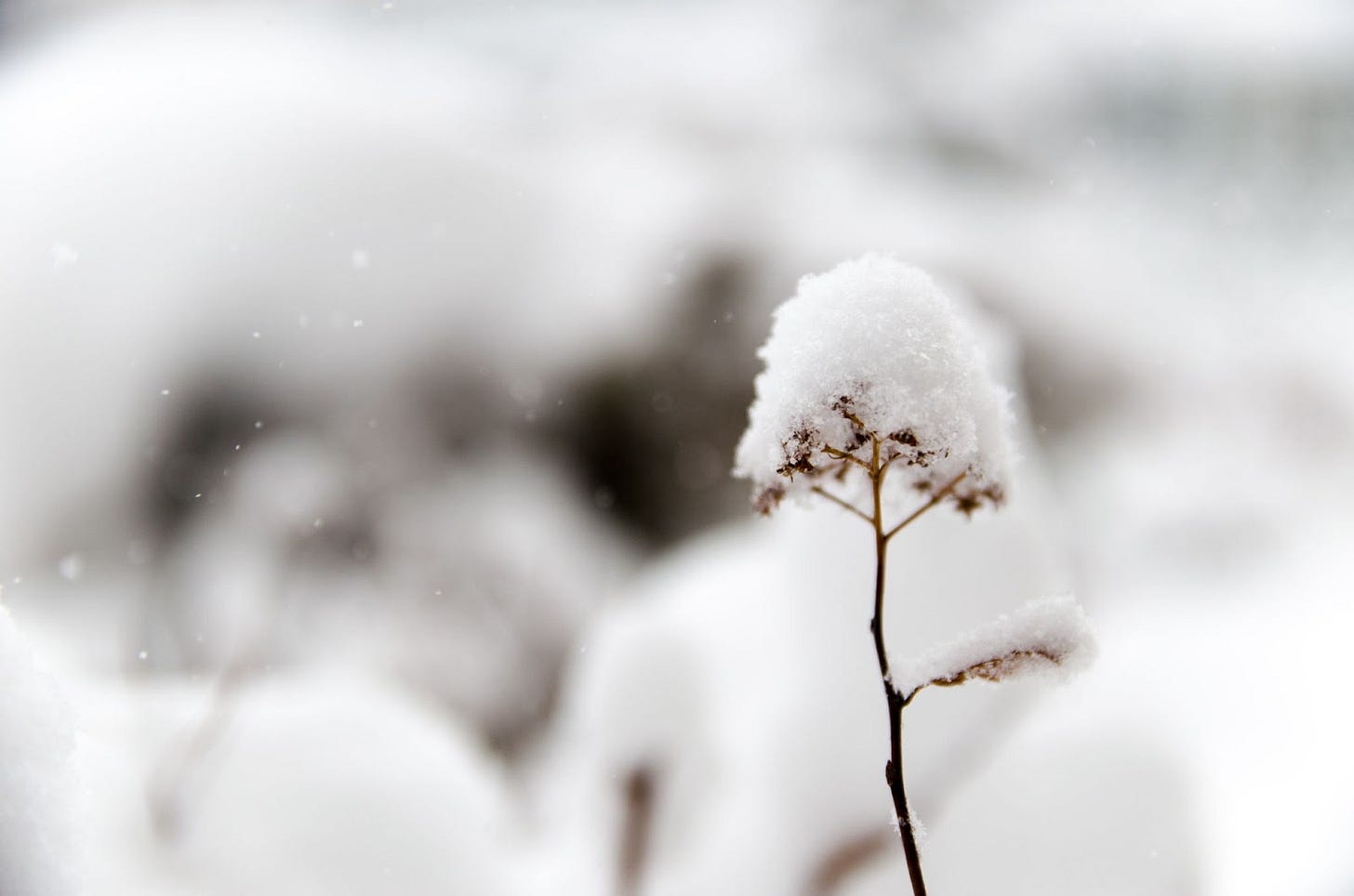What if we did less?
It’s a good time to take a cue from Mother Nature.
One evening last week, I hit a point of extreme exhaustion. It wasn’t exactly burnout or not getting enough sleep, nor was it related to the day I had. I couldn’t pinpoint why, but the tiredness was there—a sinking feeling in the pit of my stomach.
Sitting on the couch next to Billy, I wished I could simply enjoy the cozy evening, turn off my brain, and let another episode of Queer Eye wash over me. Instead, I started to cry. The exhaustion, I realized, was dread.
“I’m so tired of doing more,” I told him.
I’d had a productive day of work, but still, there were plenty more tasks to do. More emails to answer, more invoices to file, more deadlines to meet. There were the parenting tasks ahead: more meals to make, more messes to clean up, more naps to wrangle, more toys to put away, more tears to soothe. And I couldn’t ignore the tasks that should feel fulfilling but are sometimes draining: more texts to reply to, more friends to check in with, more podcasts to catch up on, more gifts to buy, more play dates to plan.
By the time all the tasks are over—and let’s be honest, they’re never truly over—there’s hardly any time left for me. More often than not, I squander those precious minutes by preoccupying myself with things like planning the next exhausting day.
Three weeks into the new year, I already feel drained by the hustle. I’m tired of working so many different freelance gigs—and knowing that I can’t afford to lose a client. I’m tired of our grocery bills rising—and being stressed out about that change. I’m tired of calculating ever-changing COVID risks—and wondering what I’m missing out on by being so cautious. I’m tired of treading water, staying positive, being resilient—and trying to convince myself and everyone around me that things are fine.
I keep thinking that this isn’t how it has to be.
There have been so many things about the past two years that have felt especially troubling. There’s the way the pandemic has divided us, instead of bringing us together. The way that income inequality continues to grow, with no action to fix it. The way we continue to push productivity and business as usual, not pausing to process how our lives have changed.
It all feels so unnatural. Not the pandemic itself, but our collective response to it. It seems like yet another sign of how disconnected we are.
This might be why I’ve been drawn to spending more time in nature and learning more about our relationship with the outdoors. Despite the cold weather, Billy, baby, and I have largely kept up our screen-free Saturday promise, choosing family hikes over time in front of the TV. I’ve likewise been engrossed by books about nature, like Braiding Sweetgrass, There’s No Such Thing as Bad Weather, and The Island of Missing Trees.
It’s a start. But the more I learn about the outdoors, the more I realize I could be doing to better connect with it—an idea that admittedly exhausts me.
After all, there’s still that tiredness that I can’t quite pinpoint.
After six years in Florida, I’d forgotten what seasons feel like. This is my first real winter in a long time. And while winter in Georgia isn’t anywhere as cold, icy, or snowy as other places, it’s still chilly—a time to hunker down and get cozy.
But that’s not what society tells us to do. The start of a new year, we’re told, is a perfect opportunity to set ambitious goals. It’s a time to keep pushing, to aim higher, to do better, to get richer.
What if we followed nature’s cues instead?
Despite the books I’m reading and the hikes I’ve taken, I’m not a particularly outdoorsy person. I don’t know how to garden. The idea of camping as a family feels overwhelming. The hammock in our yard often sits empty.
But I do interact with the outdoors, as we all do. I care about the planet. My mood is affected by the weather. And now, as I’m reconnecting with the ebb and flow of seasons, I’m reminded of what a powerful teacher Mother Nature can be.
Winter is a time of rest and preparation for the future. Plants stop growing, conserving their energy for warmer months. Animals hibernate or seek out different climates. Trees lose their leaves, making it easier for passers-by to see what lies ahead.
That exhausted evening of crying on the couch left me wondering how I could change things for myself. I didn’t want the entire year to feel this tiring. I also couldn’t fathom coming up with an overarching plan for the next 12 unpredictable months.
Instead, I’ve decided to take things season by season. For the remainder of this winter, I’m planning to follow nature’s lead. I’m going to do less—knowing full well that there will soon be time, and energy, for doing more.
For me, doing less means saying no more often, staying true to my boundaries, and being honest with myself and others when I can’t do what’s asked of me.
My approach to doing less will look different than yours, as we all have our own seasons.
I’ll do less by:
Being more selective about what I say yes to, personally and professionally
Asking for help more often and/or hiring help when I can afford it
Responding to texts and emails at a slower rate and maintaining my social media boundaries
Playing Wordle
Not setting quantitative goals for this newsletter or other arbitrary things
Letting my toddler have unstructured play, and reminding myself that’s the main source of enrichment she needs right now
Giving myself permission to grieve, cry, and rest—and not judging myself for needing those things
Doing less means adapting my expectations. Those expectations aren’t lower, but rather realistic, healthy, and wise. They are appropriate for the season, a time that will come and go.
Winter gives us the opportunity to slow down and prepare ourselves for what’s next. Instead of pushing forward—and feeling exhausted by that unnatural effort—we can learn a lot from doing less.
As Jenny Odell writes in How to Do Nothing, “To do nothing is to hold yourself still so that you can perceive what is actually there.”
Before we know it, spring will arrive. For now, though, I’m embracing the stillness that winter holds.
xoxo KHG
p.s. This Friday, paying subscribers will receive an exclusive newsletter that includes some reader reactions and personal reflections on this month’s essays. If you’d like to receive it and you’re not yet a paying subscriber, now’s a good time to join!






Parenting a toddler is exhausting. Full stop. Love your plan for self-care through this season of life. Also, I enjoy reading nature books (my personal favorites are about people who’ve undertaken long walks, i.e. The Salt Path by Raynor Winn.) Yet I am most definitely not an outdoors person, and would rather jump off a cliff than rough camp for nights on end while walking to exhaustion every day! I think I enjoy reading these books to absorb the lessons the author learned, but in a way more in keeping with my natural tendencies.
I am 100% with you on feeling drained by all the tasks with no space left for myself. At times life feels like this never ending stream of tasks and I just want to hit pause for a while. I also love the way you're leaning into nature. I've always been drawn to nature, but in the years since Sarah got sick, it's taken on an increasingly important role. Early on I spent many mornings standing in a river fly fishing while grieving the life we thought we'd have and trying to process what lay in front of us. These days I'm more often out birding or walking with our dog Mosey, but the act of being in nature is just as powerful. There is something about being present in a space that is so much bigger than you and being able to stop and just observe everything around you that I find really helpful for getting out of my head and grounding myself.